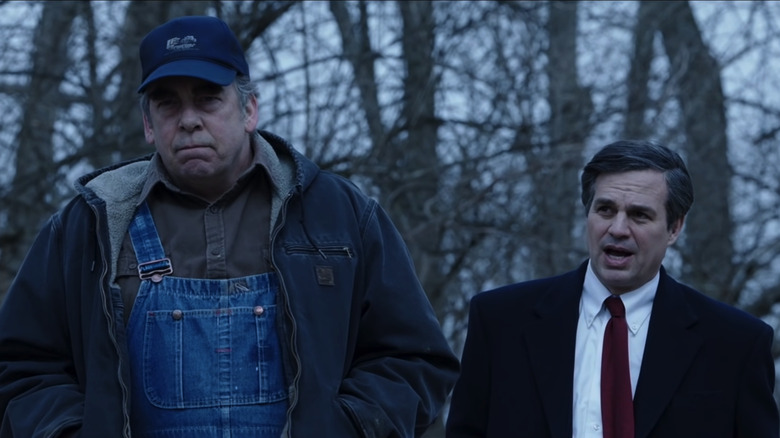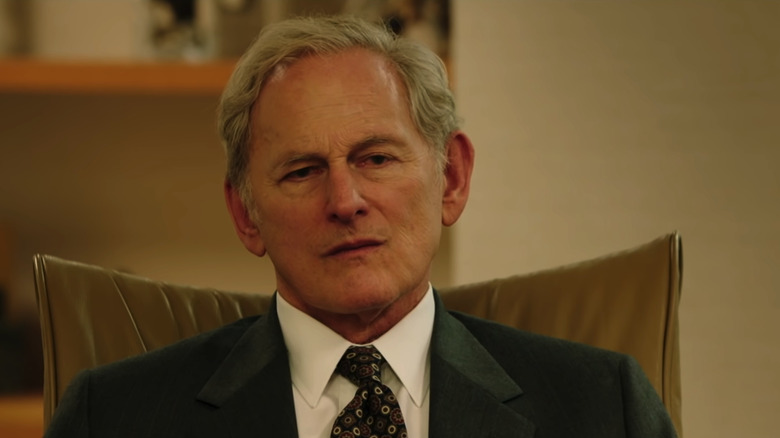How Accurate Is Dark Waters?
We may receive a commission on purchases made from links.
Sometimes the best movies are based on true stories. "The Wolf of Wall Street," "12 Years a Slave," and "The Big Short" were all not only hugely successful, but according to the data visualization website Information is Beautiful, they're also over 80% historically accurate. Though plenty of films take true events and embellish them to make more flashy or entertaining stories out of them, movies that stay true to their source material are that much more impactful when you realize they're based on reality.
One of the best movies of 2019 was "Dark Waters," an American legal thriller. It tells the messed up true story of the corporate defense lawyer turned environmentalist Robert Bilott (Mark Ruffalo), and his case against the chemical manufacturing corporation DuPont, which knowingly contaminated a rural West Virginia town with unregulated chemicals. The film was celebrated for its depiction of the DuPont case, with the Rotten Tomatoes Critics Consensus noting that it "powerfully relays a real-life tale of infuriating malfeasance, honoring the victims and laying blame squarely at the feet of the perpetrators." But just how accurate is "Dark Waters?"
Dark Waters mostly stays true to the real story
"Dark Waters" is extremely accurate when compared to the true events, which makes it all the more upsetting. The script is based on the 2016 New York Times article "The Lawyer Who Became DuPont's Worst Nightmare," written by journalist Nathaniel Rich. Though the contamination by DuPont had been covered earlier in 2007 by journalist Callie Lyons in her book "Stain-Resistant, Nonstick, Waterproof and Lethal: The Hidden Dangers of C8" as well as journalists Mariah Blake and Sharon Lerner, Deadline reported that Rich's feature-length article created the inspiration for the film.
Aside from some dramatic moments added for Hollywood flair, the majority of "Dark Waters" came directly from Rich's article and subsequent investigations. Some of the more surprising moments in the film were in fact real and confirmed by Bilott in his memoir about the case, like when the farmer Wilbur Tennant (Bill Camp), who brought the case to Bilott's attention, pointed his gun at a DuPont helicopter.
Dark Waters did invent some elements
Though the majority of "Dark Waters" was faithful to the true story, some moments were dramatized to make the narrative more clear and add some excitement to the plot. Slate compared Rich's article, Bilott's memoir about the case, and the other journalistic pieces about the DuPont scandal to determine how much of the movie was embellished. While much of the film is extremely accurate, Slate determined that several things were invented for the plot: the DuPont executive Phil Donnelly (Victor Garber) wasn't a real person, and neither was the scene where he said derogatory remarks to Bilott; there's no proof that evidence went missing from Tennant's property; and Bilott's boss Tom Terp (Tim Robbins) apparently didn't threaten Bilott for revealing his findings to the Environmental Protection Agency.
Ultimately, while there were a few dramatized moments in "Dark Waters," none of the added elements detracted from the story as a whole, and the horrible truth about what a large corporation did to a small town.


